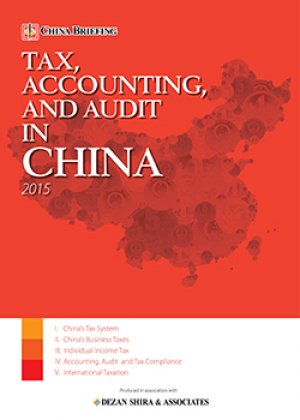China Regulatory Brief: CIT Policies for Non-Monetary Assets Investment, Coal Resource Tax Rates Released
China Clarifies CIT Policies for the Investment of Non-Monetary Assets
On December 31, the Ministry of Finance and the State Administration of Taxation jointly released the “Circular on Corporate Income Tax Policies for Non-Monetary Assets Investment,” aimed at encouraging enterprises to invest non-monetary assets and thereby reduce their tax burden. The Circular clarifies that any enterprises registered in China that receive income from the investment of non-monetary assets are allowed to defer the payment of corporate income tax for five years. Notably, the regulation applies to both newly set-up companies and existing companies looking to increase their capital.
Comments Sought on Revised Tax Administration Law
On January 5, the Legislative Affairs Office of the State Council released the “Draft of Revised Tax Administration Law,” which clarified issues for the payment of e-commerce tax. The Draft explicitly stipulates that taxpayers selling products or services online should clearly display their tax registration certificates on their websites. Also, trading platforms are required to submit all the relevant registration information of their vendors to the tax bureau. Currently, Chinese legislators are researching and collecting opinions to prepare for the promulgation of the “Administrative Regulations on Online Retail.” If ratified, the Draft would be China’s first law on tax payment for online stores. The specific tax rates and tax payment rules are expected to be released later this year.
Several Provinces Release Coal Resource Tax Rates
Several provinces in China have recently released their respective coal resource tax rates, including Henan (2 percent), Hunan (2.5 percent), Guangxi (2.5 percent) and Shanxi (8 percent). The Chinese government announced plans to launch a coal reform program starting from December 2014, including a coal resource tax to be levied on an ad valorem basis – meaning that the rate will be set based on the resource price rather than quantity. These rates are set by provincial governments and would be higher in coal-dependent provinces such as Shanxi.
![]() RELATED: With Reboot of Import Tariffs, A Sooty Future Awaits for Foreign Coal in China
RELATED: With Reboot of Import Tariffs, A Sooty Future Awaits for Foreign Coal in China
China Releases Rules for Online Sales Promotions
On January 6, China’s State Administration for Industry and Commerce (SAIC) released the draft of “Provisions for the Administration of Online Promotions for Products and Services.” The Draft stipulates that online stores may not set unreasonable rules for customers during sales promotion, such as non-refundable deposits, goods sold in advance not being eligible for unconditional return within seven days, or additional conditions for returning goods. Further, the organizers of online sales promotions should display the promotion period, rules and other relevant information on their websites in advance.
|
Asia Briefing Ltd. is a subsidiary of Dezan Shira & Associates. Dezan Shira is a specialist foreign direct investment practice, providing corporate establishment, business advisory, tax advisory and compliance, accounting, payroll, due diligence and financial review services to multinationals investing in China, Hong Kong, India, Vietnam, Singapore and the rest of ASEAN. For further information, please email china@dezshira.com or visit www.dezshira.com. Stay up to date with the latest business and investment trends in Asia by subscribing to our complimentary update service featuring news, commentary and regulatory insight. |
![]()
 Tax, Accounting, and Audit in China 2015
Tax, Accounting, and Audit in China 2015
This edition of Tax, Accounting, and Audit in China, updated for 2015, offers a comprehensive overview of the major taxes foreign investors are likely to encounter when establishing or operating a business in China, as well as other tax-relevant obligations. This concise, detailed, yet pragmatic guide is ideal for CFOs, compliance officers and heads of accounting who must navigate the complex tax and accounting landscape in China in order to effectively manage and strategically plan their China operations.
 Adapting Your China WFOE to Service China’s Consumers
Adapting Your China WFOE to Service China’s Consumers
In this issue of China Briefing Magazine, we look at the challenges posed to manufacturers amidst China’s rising labor costs and stricter environmental regulations. Manufacturing WFOEs in China should adapt by expanding their business scope to include distribution and determine suitable supply chain solutions. In this regard, we will take a look at the opportunities in China’s domestic consumer market and forecast the sectors that are set to boom in the coming years.
 E-Commerce in China
E-Commerce in China
In this issue of China Briefing Magazine, we cover the current laws pertinent to the e-commerce industry in China, as well as introduce the steps involved in setting up an online shop in the country in order to help provide foreign investors with an overview of the e-commerce landscape in China.
- Previous Article China Regulatory Brief: Guangzhou subventioniert R&D, China-Russland Abkommen, Universal Studios Park in China
- Next Article New Draft of Charity Law Submitted to China’s National Legislature





























